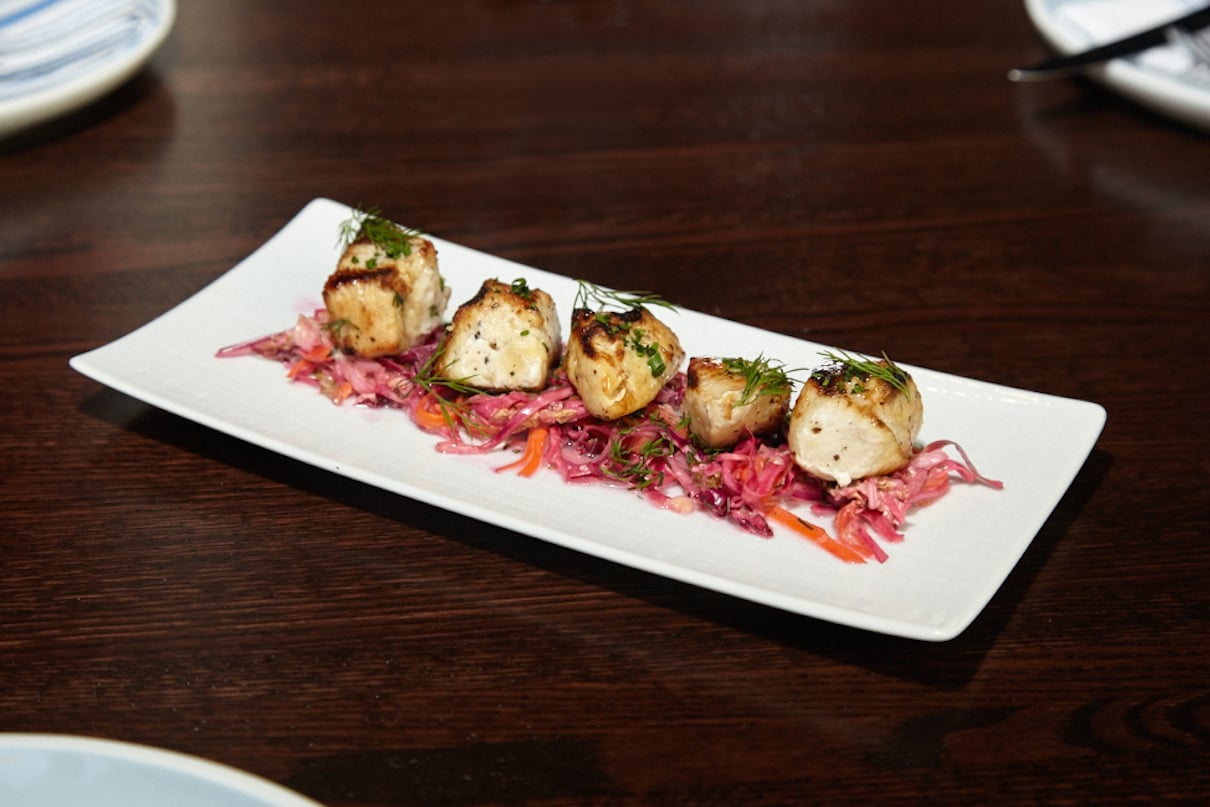The food of Portugal doesn't get as much attention as that of its neighbor, Spain. Spanish tapas are all the rage–or our version of tapas, anyway, which takes a predinner snack with drinks and converts it into a full meal. Most everybody knows what paella is, but most Americans would be hard pressed to name a Portuguese dish other than perhaps bacalhau, the salt cod that the Portuguese, along with other Mediterranean cuisines, use extensively.
Carlos Mendes wants to change that. He and his wife, Maria, both natives of Portugal, have opened A Caravela, named after the Portuguese sailing ship that enabled the great age of exploration–Columbus's Niña and Pinta were both caravelas–in DC's Tenleytown neighborhood. Mendes spent five years with high-powered chef Yannick Cam, plus jobs as executive chef at Tavira, Le Jardin, and Parioli, and as a manager at Le Provence, Aquarelle at the Watergate, and Catalan.
In A Caravela, Mendes has created a restaurant that's casual, attractive, and comfortable. The lime-green walls are decorated with Portuguese landscapes, the tables are set with Portuguese ceramics, and the inviting bar has become a neighborhood hangout.
The food is impressive–Mendes is a good missionary for his native cuisine. You might start a meal with a cup of Portugal's traditional Caldo Verde, green soup made with kale and Portuguese chorizo; a generous serving of salt cod fritters, which go very well with drinks; a terrific gratin of lobster with fennel; or, best of all, a dish of clams sautéed in garlic with cilantro and white wine–rustic cuisine that very nearly attains elegance.
Portugal's Atlantic coastline means that its cuisine is rich in fish and shellfish dishes. A Caravela's seafood selection includes two salt-cod dishes. In the simpler Bacalhau Assado, the cod is well soaked (so not too salty), grilled, and paired with peppers, onions, and potatoes–a fine example of a great dish created out of the necessity of preserving fish. Grilled fresh sardines are served in much the same fashion, with roasted peppers and potatoes. But the best fish dish is Arroz de Marisco–an assortment of fresh shellfish, clams, mussels, shrimp, sea scallops, and lobster, cooked in a crock with fresh herbs and rice. It's a splendid and generous interpretation of this traditional Portuguese dish. Seafood and meat is a classic Portuguese combination, and the pork served with clams and potatoes is a delicious example of it.
Poultry dishes are varied and well prepared. Duck is grilled, sliced, and served with turnips in a Cabernet sauce. Quail are boned, grilled, and accompanied by terrific fried potatoes. Chicken is marinated in olive oil and Tabasco, grilled to a crisp outside and moist interior, and served with great homemade potato chips.
Desserts are not a strength of the kitchen. Flan seemed eggy. A mousse of passion fruit–maracuja–is the most interesting of them.
The wine list has a number of interesting and well-priced Portuguese and Spanish wines, but the restaurant has been out of many of them. This has been almost the only disappointment in a delicious exploration of an underappreciated cuisine.
ATMOSPHERE: A modest, attractive restaurant with live entertainment some weekends.
FOOD: Delicious renditions of many classic Portuguese dishes.
SERVICE: Efficient, but can be slow on busy weekend nights.
PRICE: Lunch main courses, $9 to $12. Dinner main courses, $17 to $23. Full dinner for two: about $80.
WINE LIST: A number of interesting and inexpensive Spanish and Portuguese bottles.
VALUE: Good.
BOTTOM LINE: A good place to explore a little-known and delicious cuisine.

















